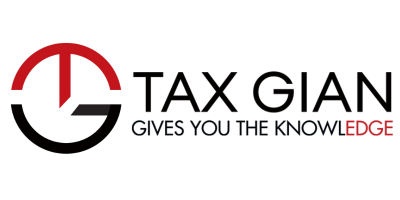As governments around the world increase their focus on preventing base erosion and profit shifting, compliance with transfer pricing regulations has never been more crucial. Transfer pricing advisers in the UAE can help you navigate the complexities of transfer pricing.
In this comprehensive guide, we will explore the top dos and don’ts for transfer pricing compliance to help businesses navigate the complex regulatory landscape.
Key Transfer Pricing Dos:
Conduct Transfer Pricing Risk Assessment
Before establishing or revising your transfer pricing policies, conduct a comprehensive risk assessment. This involves evaluating the intercompany transactions and identifying potential areas of concern. Assessing the potential risks early on allows for proactive adjustments to ensure compliance and mitigate the risk of audits or disputes.
Document Everything
Rigorous documentation is the cornerstone of transfer pricing compliance. Maintain detailed records of all intercompany transactions, including pricing methodologies, economic analyses, and any adjustments made. Proper documentation not only ensures compliance but also serves as crucial evidence in the event of a tax audit or dispute.
Comparable Uncontrolled Price Method
The Comparable Uncontrolled Price (CUP) method, which compares the price of a controlled transaction with the price of an uncontrolled transaction in an open market, is widely accepted by tax authorities. Whenever possible, use this method as it provides a direct comparison, making it easier to defend your transfer pricing practices.
Regularly Update Transfer Pricing Policies
The business environment is dynamic, and economic conditions can change rapidly. Regularly review and update your transfer pricing policies to reflect changes in market conditions, industry trends, and the company’s financial performance. This ensures that your transfer pricing remains aligned with current economic realities.
Engage External Experts
Transfer pricing is a complex field that requires specialized knowledge. Engage external experts, such as transfer pricing consultants in the UAE to conduct independent analyses and ensure that your transfer pricing policies adhere to local regulations. Their expertise can be invaluable in navigating the intricacies of transfer pricing compliance.
Key Transfer Pricing Don’ts:
Ignoring Local Regulations
Each country has its own set of transfer pricing regulations, and compliance requirements vary. Ignoring or underestimating the importance of local regulations can lead to serious consequences, including penalties and reputational damage. Stay informed about the transfer pricing rules in each jurisdiction where your company operates.
Relying Solely on Internal Comparisons
While internal comparables are useful, relying solely on them can be risky. Tax authorities often prefer the use of external comparables to ensure a fair and unbiased analysis. Balance internal and external comparables to strengthen your transfer pricing position.
Using Aggressive Transfer Pricing Strategies
Aggressive transfer pricing strategies that artificially reduce taxable income can attract the attention of tax authorities and lead to audits. While minimizing tax liabilities is a legitimate goal, it must be achieved within the bounds of applicable regulations. Avoid strategies that could be perceived as overly aggressive or non-compliant.
Overlooking Documentation Requirements
Incomplete or inadequate documentation is a common pitfall in transfer pricing compliance. Failing to meet documentation requirements can result in penalties and difficulties in defending your transfer pricing practices during an audit. Make sure to keep detailed and up-to-date documentation for all intercompany transactions.
Underestimating Communication
Effective communication with tax authorities is key to a smooth transfer pricing compliance process. Keep tax authorities informed about your transfer pricing policies, methodologies, and any changes. Proactive communication can help build trust and reduce the likelihood of disputes.
Hire the Best Transfer Pricing Consultants in Dubai, UAE
Navigating the intricacies of transfer pricing compliance in the UAE requires a proactive and informed approach. By adhering to the dos and don’ts outlined in this guide, businesses can enhance their compliance efforts, minimize the risk of disputes, and ensure that their transfer pricing practices align with the evolving global tax landscape.
Transfer pricing advisers in Dubai such as Tax Gian can help you comply with the transfer pricing regulations seamlessly. Tax Gian is a brand of Jitendra Tax Consultants offering end-to-end transfer pricing services in Dubai, UAE. Availability of the services of leading tax experts such as Tax Gian makes the UAE transfer pricing compliance process seamless. Call us today to avail yourself of transfer pricing consulting services in Dubai, UAE.



